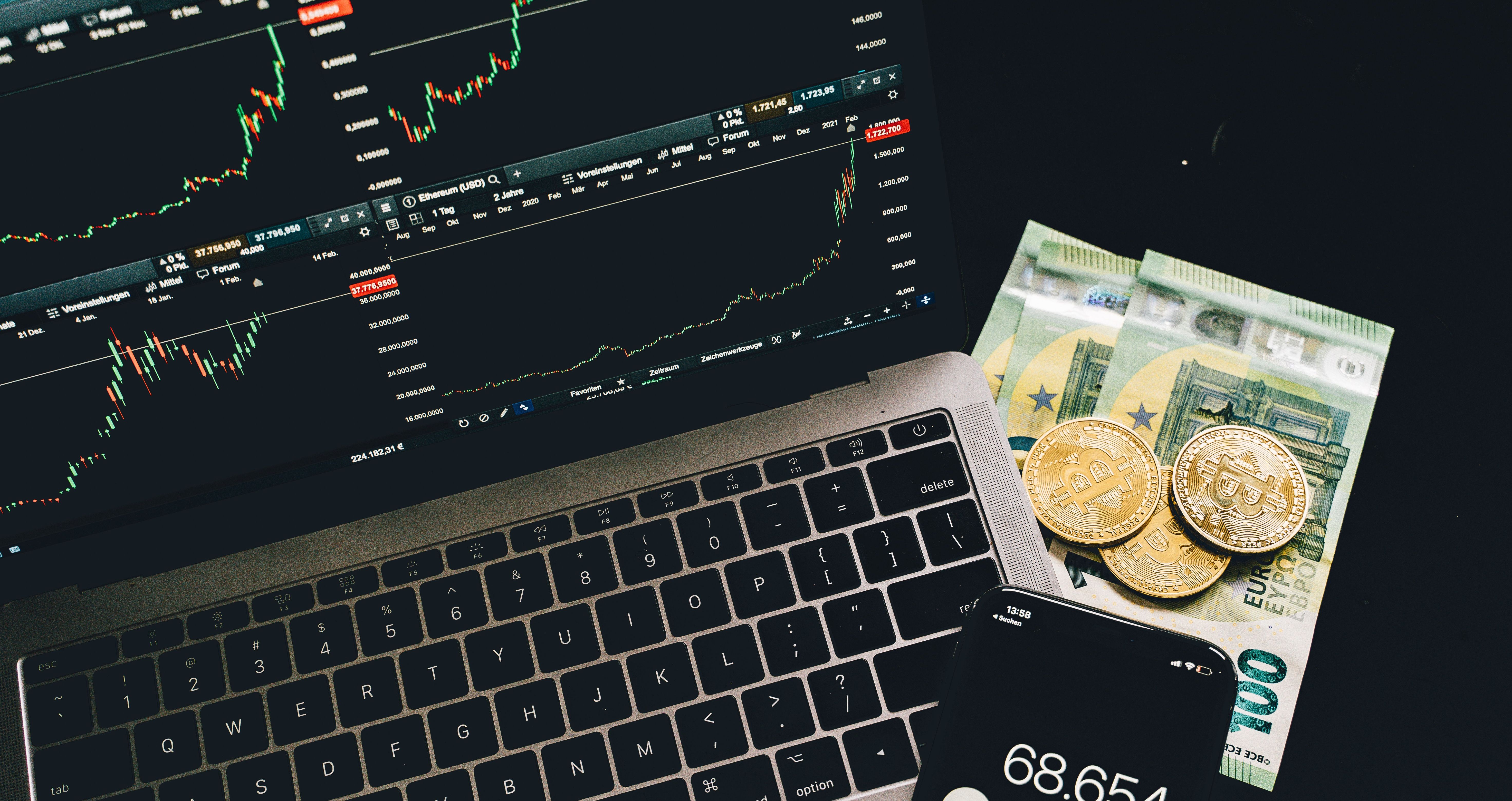Over the past few years, you've probably heard the word "crypto" at least a couple of times, even if you have no real interest in it. The word "crypto" or "cryptocurrency" has become widely known, but "DeFi," another emerging trend, is less well-known. So, what is DeFi, how does it relate to cryptocurrency, and is it the future of finance?
What Is DeFi?
DeFi stands for decentralized finance, but what does it actually mean? Well, take finance, which generally involves the management of money, and then take decentralization, which involves a system that has no central authority or power. Combine them, and you get the decentralized management of money.
Like cryptocurrency, DeFi operates on a blockchain, which consists of blocks that contain multiple transactions. The great thing about blockchains is that they're more or less impossible to hack or alter, which allows for total transparency and reliability within a network. A number of different devices can hold the transactional records within a network, which means no individual or group of individuals holds all the information, and therefore the power, within a decentralized system.
So, how does DeFi differ from centralized finance?
Traditionally, an individual's money is often held in banks with a central authority. Additionally, the overall goal of a bank is to make money off their customers, and there are often several financial middlemen who stand to also make a buck by processing transactions, managing funds, and more. Decentralized finance removes any financial intermediaries present in centralized finance using peer-to-peer networks.
On top of this, using DeFi doesn't require you to give your name, address, or any other sensitive details, unlike centralized finance. This further increases the levels of security and privacy offered by DeFi.
Through DeFi, you can access a wide array of financial products. There are lending platforms, loan services, savings options, and much more. It essentially encapsulates many of the elements of traditional financial services with added security, anonymity, and transparency. It's worth noting that DeFi is intended for decentralized currency, such as Bitcoin, Litecoin, or Cosmos, instead of traditional fiat currency.
So, now we know what DeFi is, let's discuss where exactly you can access and use it.
Where Can You Use DeFi Services?
DeFi services are typically found on the Ethereum blockchain, the world's second-largest crypto platform. This public blockchain is known for its wide array of DApps, or decentralized applications, many of which involve the storage, trade, or management of funds. These are known as decentralized finance apps.
You'll find the majority of decentralized finance apps on the Ethereum blockchain because it's generally much easier to use than other major blockchains in terms of developing applications for the network. Some major DApps, such as Maker and Aave, exist on the Ethereum blockchain.
These two applications provide different services. Maker allows digital asset holders to borrow and lend crypto against collateral, while Aave allows users to act as either liquidity lenders or loan borrowers. There's really no end to the different decentralized financial products you can find on the Ethereum blockchain.
However, not all decentralized finance apps exist on the Ethereum blockchain. Consider Colony Labs, for example. This community-driven fund supports up-and-coming blockchain projects and exists on the Avalanche blockchain. There are also several great decentralized finance apps on the Binance Smart Chain, or BSC, such as PancakeSwap, a trading liquidity provider.
On top of all this, decentralized exchanges, or DEXs, are also decentralized finance applications. Additionally, DeFi incorporates a number of other services, such as yield-farming and liquidity mining.
DeFi Is the Future of Money
Though DeFi is already hugely popular worldwide, its continued development and release of new services are securing its place in the future of cryptocurrency. Decentralized finance may replace centralized finance altogether! We'll have to wait and see whether its many benefits make it a viable alternative to traditional financial services for most people.



